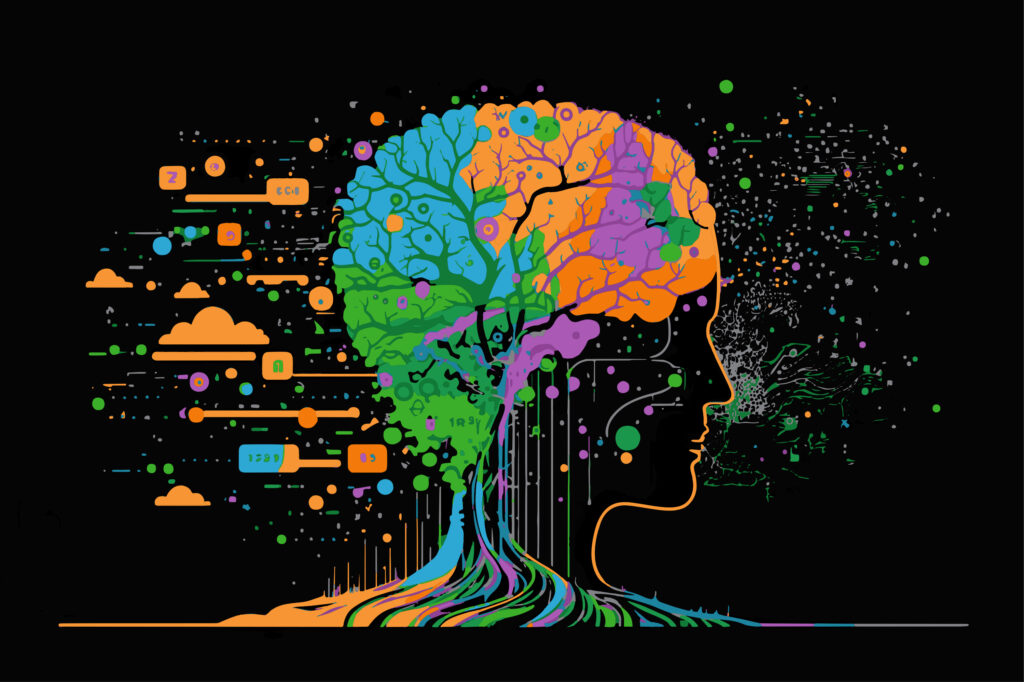Generative AI (GenAI) has already transformed industries, providing powerful tools to enhance functions, including content creation and data analysis. But GenAI relies on getting human prompts in real time. Enter agentic AI, which operates with greater autonomy—gathering information, making decisions and completing tasks without continuous human interaction. While GenAI is like a child taking its first steps, agentic AI strides independently and confidently forward, poised to revolutionize business systems from workflow management to customer service automation.
How Agentic AI Will Transform B2B Tech Operations
In the fiercely competitive world of B2B tech, where margins are often razor-thin, the speed and precision of agentic AI are game changers. By streamlining operations, minimizing manual intervention and accelerating decision-making, agentic AI frees up valuable resources, allowing teams to focus on strategic initiatives. Here are some of the ways agentic AI is set to revolutionize B2B operations:
Efficiency at Scale
According to research for Gartner, by 2028, 15% of day-to-day work decisions will be made autonomously.2 Agentic AI processes complex data faster than ever, optimizing workflows and reducing operational costs. This allows B2B companies to handle large-scale operations more efficiently.
Cost Savings and Resource Optimization
By automating routine tasks, agentic AI frees employees to focus on more strategic work. From supply chain management to customer service, AI-enabled systems can independently detect needs, compare prices and execute decisions, leading to potential cost savings.
Enhanced Customer Engagement
Agentic AI can provide personalized, data-driven experiences for clients by analyzing customer data and responding automatically, creating stronger, more tailored interactions that foster long-term loyalty.
Improved Operational Agility
In a fast-paced market, agentic AI’s ability to learn and adapt in real time allows companies to stay nimble, responding quickly to changes or operational challenges. This adaptability is crucial for maintaining a competitive edge.
Real-World Use Cases of Agentic AI in B2B Tech Operations
Agentic AI is making a significant impact in B2B tech operations by automating complex tasks and enabling smarter decision-making across various industries. Below are some examples of how agentic AI is already revolutionizing key functions.
Software Development and Testing
Unlike traditional AI, which offers code suggestions, agentic AI independently writes, debugs and tests code. For healthcare tech companies, real-time code optimization helps teams meet stringent and evolving compliance needs. It can monitor regulations such as HIPAA, update code to maintain privacy standards, lighten development team workloads and accelerate the creation of secure healthcare platforms.
Customer Support
In the service sector, agentic AI transforms customer support by autonomously resolving complex issues. For financial companies, it provides real-time assessments and tailored solutions, reducing wait times and enabling personalized support. In addition, agentic AI paves the way for more customized communications in global markets, with AI agents fluent enough to deliver seamless multilingual support capabilities.3
Dynamic Sales and Marketing
Agentic AI has the power to transform how companies identify new markets, optimize sales strategies and personalize customer interactions in real time. In industries such as financial services, it can identify untapped markets, tailor sales approaches and launch highly targeted marketing campaigns.
Self-Optimizing Supply Chains
In electronics manufacturing, agentic AI can manage supply chains to anticipate disruptions and automatically refine operations. These systems forecast market trends, adjust procurement orders based on current component availability and reroute shipments during delays. For instance, agentic AI could detect a semiconductor shortage and shift production to focus on products with available parts.
Product Development and Market Adaptation
In the SaaS industry, agentic AI is transforming how B2B companies develop and refine their products. These agentic systems excel at analyzing customer feedback, usage data and market trends. They can independently adjust product roadmaps and feature releases in real time. For example, agentic AI could identify an underutilized software feature and autonomously design and deploy an update to enhance its functionality.
The Future of Agentic AI in B2B Tech
Agentic AI is revolutionizing B2B digital transformation by moving beyond automation to proactive decision-making. It enables companies to predict trends, personalize customer experiences and innovate faster. Early adopters aren’t just improving efficiency—they’re transforming their business models to stay ahead in an evolving market. As agentic AI continues to evolve, it will redefine what it means to be competitive in the digital age.
- Gartner. Intelligent Agents in AI Really Can Work Alone. Here’s How, May 2024
- Ibid.
- Forethought, Top Use Cases for AI Agents
